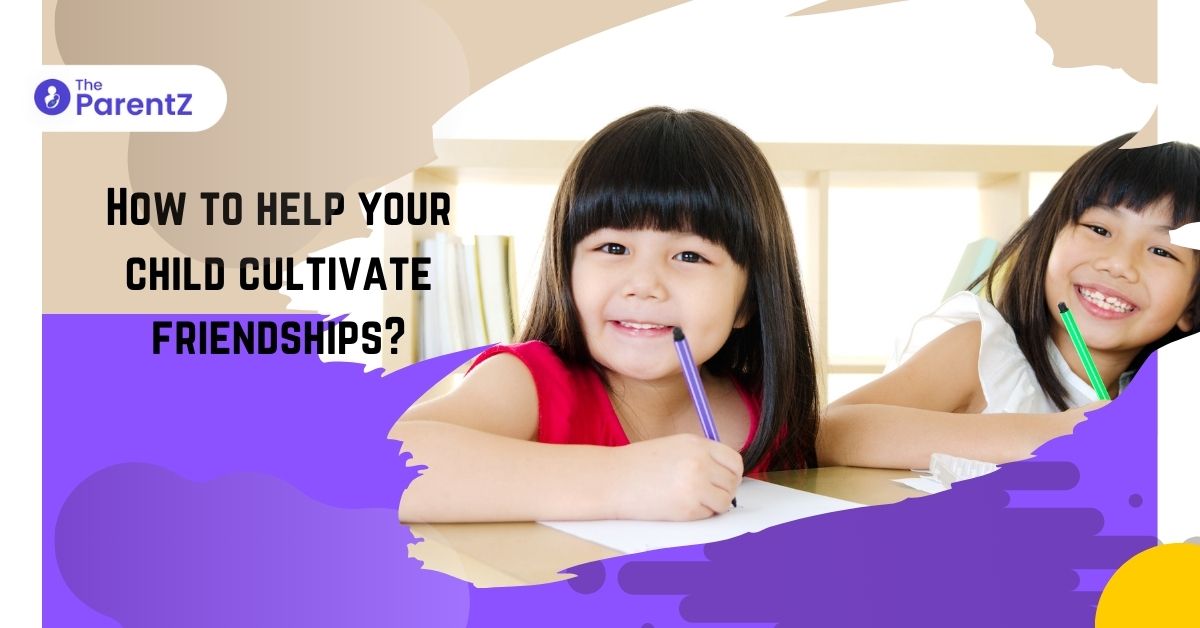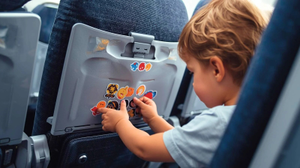One of the most amazing gifts parents can give their children is the ability to reap beautiful and candid relationships with others and the sooner you begin, the better it is
Let us roll back the clock and revisit in our minds the corridors of our school; those wooden benches, that teacher who always narrated some beautiful tales to us. I’m sure some of them still refuse to leave you till date. As a student, I remember reading tales from Aesop’s Fables. One classic tale narrated the day in the life of two friends who were traveling to another city. While doing so they had to cross a dense and dangerous forest where they were confronted by a bear. We all know what followed in the parable. One friend deserted the other by climbing a nearby tree. The latter was left to fend for himself….. And then the teacher spelt out the moral of the story in capital letters on the board: “A FRIEND IN NEED IS A FRIEND INDEED”.
Sadly too often the story is treated merely as a medium of laying out ‘good’ moral values for our kids so that they lead ethical lives. Parents can actually play a great role in helping their children select friends judiciously. The onus to help children understand the true meaning of friendship and help them make genuine friends lies with the parents. Children should eventually discover in the course of their lives and learn how to measure their quality of life by the quality and not the quantity of their friendships.
Elizabeth Hartley Brewer describes friendship beautifully in her book, ‘Making Sense of Your Child’s Friendships. The author has given us some wonderful insights into friendships. They will not only give you a renewed meaning of your own friendships with others but also help you help your child to find their genuine friends.
Your child is just starting school and will be away from the super loving and protective environment at home. This is how you can teach them to kindle friendships:
- Makes him feel happy.
- Makes him feel loved, cherished and valued unconditionally
- A good friend is someone who doesn’t get threatened. He allows him the freedom to talk to others and let them enjoy the liberty of exploring friendship with others.
- Who believes in sharing and caring
- Doesn’t hold grudges and forgives easily.
- Would never put him or others down.
Friends are the family we choose. And hence it is important that we choose them well. A few tips on how you can teach your children to weave the magic of friendship in their lives.
1. Overcoming Shyness
Some kids take more time or have more difficulties in making new friends than other kids in their age bracket. This is where you have to step in as a parent. Let the first lesson begin at home. Be your child’s first friend or rather be his friend first. Then you can begin teaching them about making friends.
Apart from shyness, there are a lot of factors that could prevent him from making friends at school. Lack of or low self-esteem, high intelligence and poorly developed social skills could be a few reasons. You can help your child by working on his drawbacks and take him to places or activities where he can meet prospective friends. Alternatively, if your child is more comfortable at the home turf, you can call playmates over and encourage them to indulge in indoor or outdoor play.
2. Choose qualities over people:
As a toddler, your child may have chosen his friends as a natural instinct without really thinking too much. Such friendships are situational. For example, a child sitting next to him in a hobby class or playing along with him becomes his ‘friend’. It is as simple as that. Such friendships are fairly temporary. They may forget about it soon. As they grow older, they pick their friends based on likes and dislikes.
Toddlerhood is an important phase of his life wherein your child is actually learning about people. Teach your child about the qualities genuinely good human beings possess. This will help him in future when he will have more long term or life-long friendships.
3. Facilitate, not force:
It is important to play the role of a catalyst and not a forceful element when it comes to helping your child establish friendships. Otherwise, you will do more harm than good. There should be no parental pressure whatsoever. No matter how desperate you are to help your child make great friends. Remember, friends, are chosen not forced upon. Friendships formulated out of similar interests and outlooks are more meaningful and take time and need fostering.
4. Role-Modeling:
Children learn the best when they learn through watching and modeling and re-modeling behavior. You should introduce your child to the various characteristics of true friends. People who are nice are gentle to animals, respectful towards elders, kind towards those of the same age or even younger, are supportive, are not jealous when their friends or others get good grades, do not gossip etc.
If you simply preach the above traits to them and fail to depict them in your own adult friendships, you cannot really expect your child to become an exemplary friend. Hence the cardinal rule here is to portray the qualities you want them to pick up with your close friends first.
5. Give them a road-map:
Kids are fascinated by stories so much that they often start to emulate the characters itself. The stories could be picked from fables or real life examples can be narrated in the form of a story. For instance, if you have been there for a friend and supported them at a difficult time, tell your child about it. It could also be the case that a dear friend had bailed you out of a difficult time. Look out for teachable moments how they can be helpful to others.
If the child shares something that happened in their class, ask questions such as: What happened to the boy/girl? Was he/she hurt? Did the incident upset him/her? You need to make him ponder about and ask them to go back to the situation. Ask them what would a good human being do for another? Could the child have consoled his classmate in distress? What were the ways in which they could have comforted him? etc.
You do not have to push every single value all at the same time. They will be really young yet impressionable when they begin school. Allow things to take their course and you be by their side reflecting each quality and value when needed.





Be the first one to comment on this story.